Jimmy Carter Was Actually a Very Good Foreign Policy President
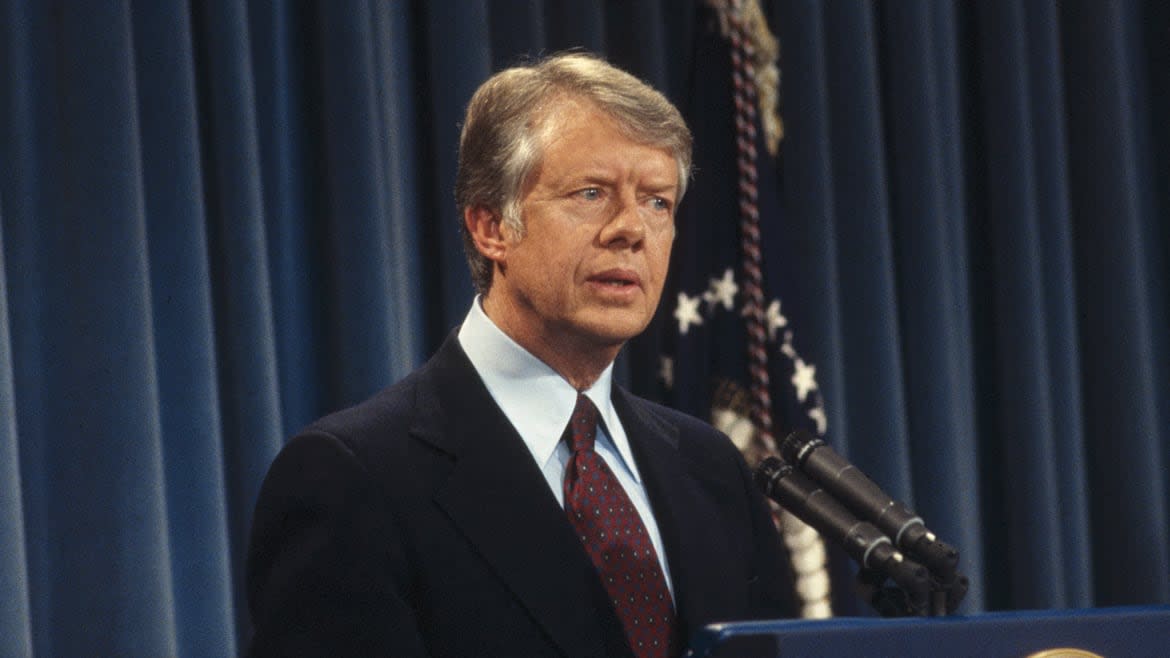
- Oops!Something went wrong.Please try again later.
As former U.S. President Jimmy Carter has entered hospice care and begun the final phase of his long, remarkable life, we should stop not only to appreciate his outsized contributions to our society but also to reflect on some of the lessons of his political life. And doing so might help correct a longstanding wrong—which is that Carter’s presidency was treated with terrible unfairness by pundits and conventional wisdom.
What is more, the under-appreciation of Jimmy Carter when he was president offers important insights into our own political moment and how we have gotten here. Since Carter left office in 1980, the too-easy, misleading, canned analysis of his life was that he was a mediocre president who became an exceptional ex-president, leading for decades by virtue of his service and lived values. It is commonplace to suggest that his presidency was a footnote to history, one perhaps most notable because it ushered in the “greatness” of the Reagan Era.
The Green Lantern Theory Destroyed Jimmy Carter’s Presidency. Now It’s Hitting Joe Biden.
Because of the optics of the Iran hostage crisis that dominated his last year in office, Nobel Peace Prize-winner Carter was maligned as a “weak” foreign policy president who fortunately was succeeded by the disconnected, often-befuddled Reagan’s “strong” leadership as he allegedly went eyeball-to-eyeball with the Soviet Union and practically brought down the Berlin Wall with a single speech and a sparkling Hollywood smile.
As happens so often, in this case, the conventional wisdom is exactly wrong. Carter was in virtually every respect superior to Reagan, especially in areas like foreign policy and the restoration of American leadership. Indeed, even out of office, Carter proved both more visionary and far more principled and courageous on world affairs than most of his successors were.
Reagan, the author of both the politics and economics of American division, disengaged as president, and in many ways unfit for the office, was beatified by the right wing press, even as his administration was rocked by scandal and associated with policies that exacerbated inequality from coast-to-coast. The conventional wisdom gave him credit for “bringing down” the USSR even though some of his policies were reckless, expensive and even a bit ridiculous (see: Star Wars or the invasion of Grenada), some have proven to be a lasting embarrassment to America (see: the wars in Central America and the Iran-Contra affair) and none actually led to the fall of the USSR (which was really due to failures with the Soviet system and long-term policies set in place during the Truman and Eisenhower administrations).
On foreign policy, specifically, Carter’s record is worthy of reappraisal.
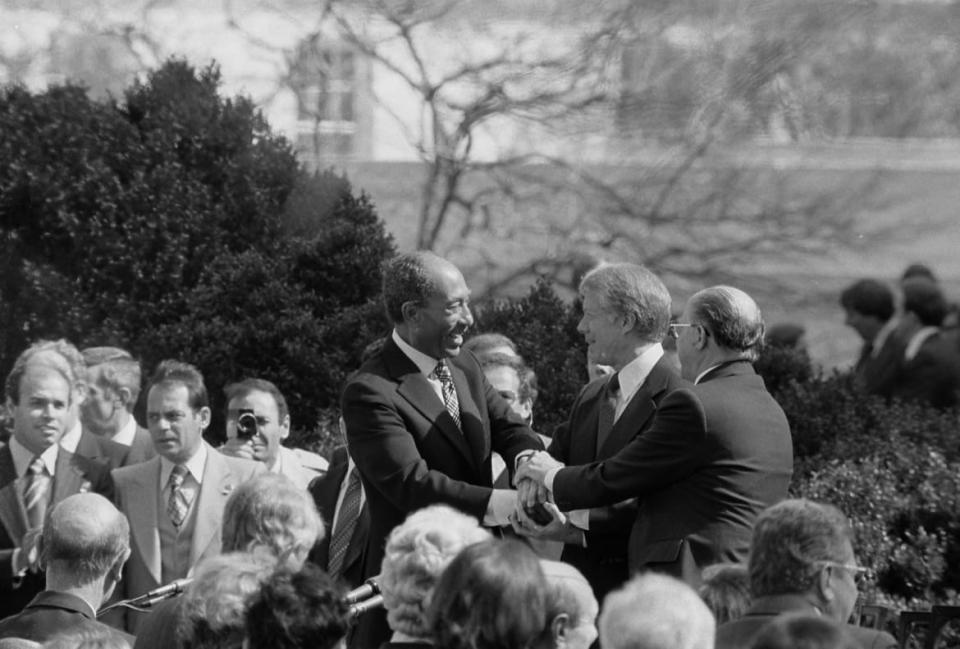
President Jimmy Carter shakes hands with Egyptian President Anwar Sadat and Israeli Prime Minister Menachem Begin at the signing of the Egyptian-Israeli Peace Treaty on the grounds of the White House in 1979.
Carter, of course, won the Nobel Prize for his work as the driving force behind the Camp David Peace Accords between Anwar Sadat’s Egypt and Menachem Begin’s Israel. It stands to this day as one of the most significant and meaningful peace efforts since the founding of Israel had triggered a cycle of wars and regional tensions.
It was Carter who turned the initial outreach that Nixon and Kissinger made to China into normalized relations and diplomatic recognition, a vitally important development in what would become the most important bilateral relationship in the world. The Carter administration also deserves credit and recognition for overseeing the smooth handover of the Panama Canal to the nation of Panama, an important landmark in U.S. relations with Latin America.
Reagan is often seen as the president who initiated the tough policies that brought down the Soviet Union. As noted earlier, the policies of containment and strong defense against the Russians date back much earlier. But it was Carter, with the notable advice of his National Security Advisor Zbigniew Brzezinski, who in response to the Soviet invasion of Afghanistan increased pressure on the Russians and reversed the reduction in tensions associated with the détente of the Nixon-Kissinger era.
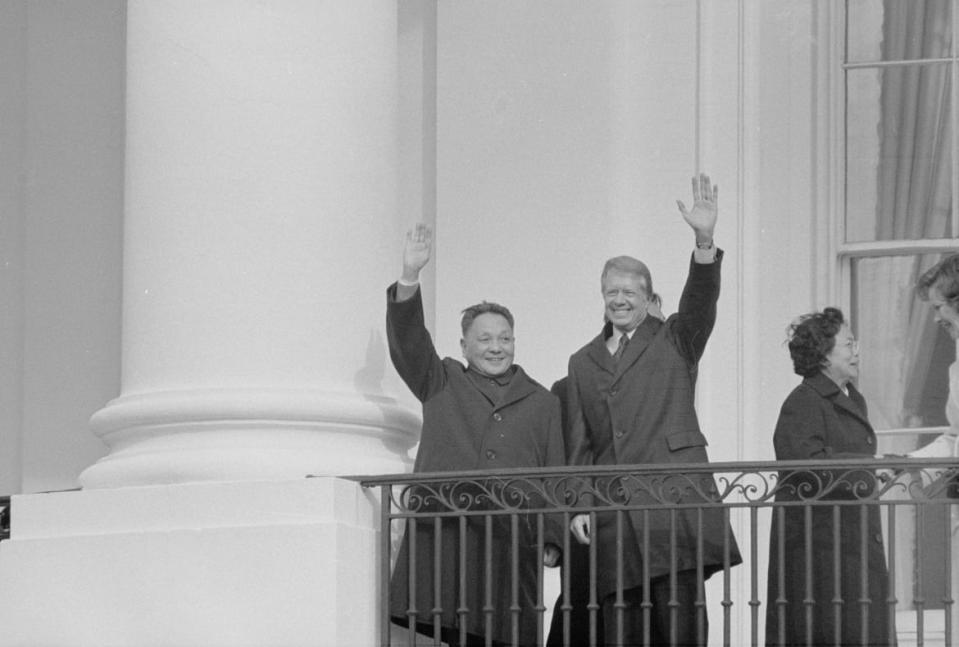
Deng Xiaoping, Vice Premier of China and President Jimmy Carter wave from a balcony at the White House, Washington, D.C. in 1979.
Carter played an important role in advancing what are now seen to be as foundational elements of a progressive foreign policy agenda. He pushed for human rights and democracy promotion to be at the center of U.S. foreign policy. Inheriting a country that was being buffeted by an OPEC oil squeeze and energy company profiteering, Carter sought to promote energy independence, actively embraced conservation (though ridiculed for it by the likes of Reagan who made a show of removing solar panels Carter had placed on the roof of the White House) and put into place a windfall profits tax on oil companies.
We’ve Done Lots for Ukraine, but Winning Will Take Much More
Carter was also the first U.S. president to visit sub-Saharan Africa and was effective in helping to usher in the transition from white minority rule in Rhodesia to black majority rule in Zimbabwe.
The one foreign policy issue that dogged and ultimately played a significant role in Carter’s being a one-term president was Iran.
Following the advice of his foreign policy team to let the Shah of Iran into the U.S. and then witnessing the subsequent Iranian Revolution, Carter was then bedeviled by the actions of the new regime, which took 66 Americans hostage in November 1979. Carter approved an attempted rescue of the hostages, but it failed and led to the resignation of Secretary of State Cyrus Vance.
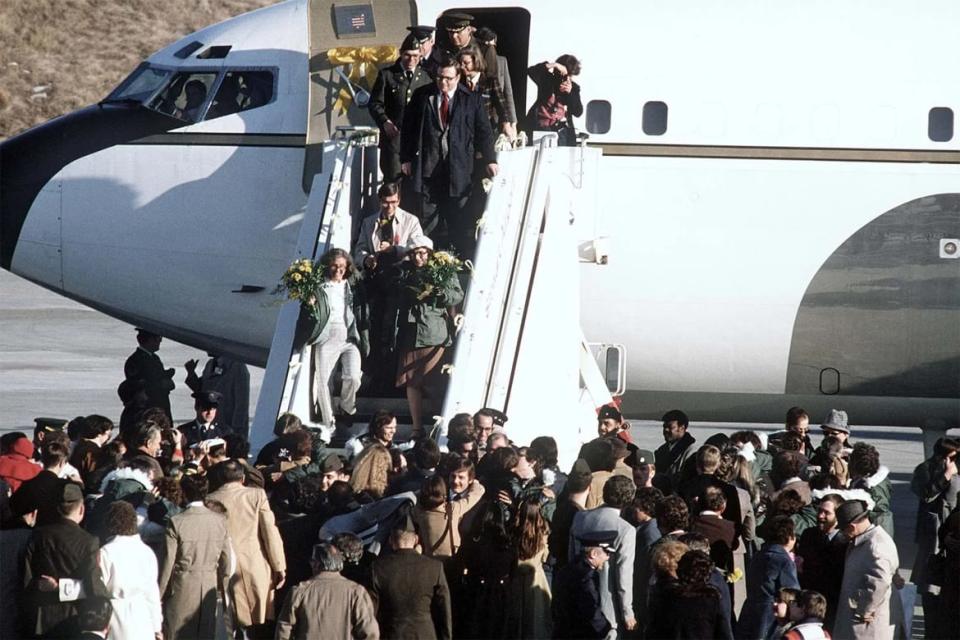
Former hostages arriving in the United States on Jan. 25, 1981, five days after being released by Iran.
Nonetheless, negotiations for the release of the hostages continued throughout his term of office. But they were secret, and perceptions of his impotence in the face of the crisis were exploited by Reagan in the 1980 election.
As it later turned out, however, the terms for the release of the hostages were achieved under Carter. But Iranian leaders sought to engineer Carter’s defeat by refusing to release the hostages until 30 minutes after Reagan took office.
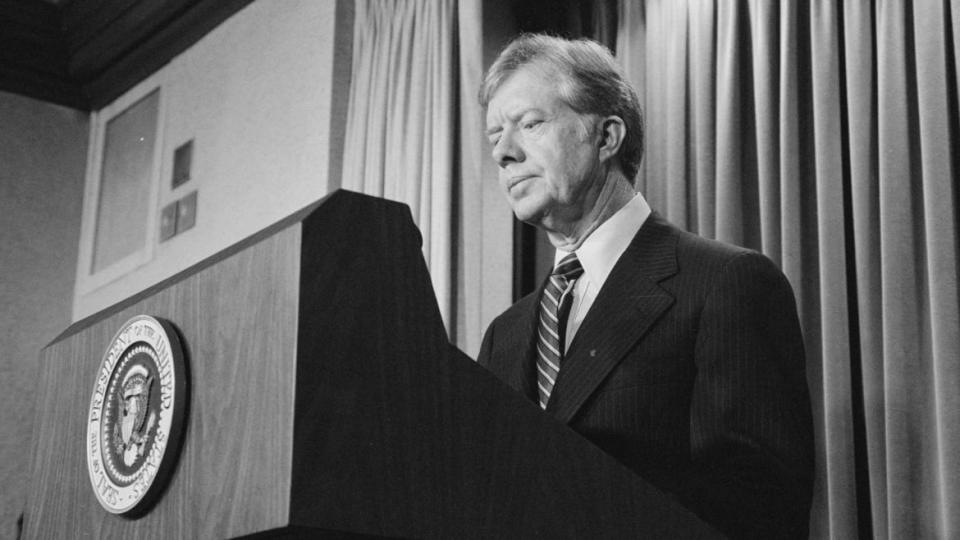
President Jimmy Carter announces new sanctions against Iran in retaliation for taking U.S. hostages in 1980.
As was the case with toughening policies against Russia, Reagan was the beneficiary of Carter administration actions. (This was also true in the other big area that undercut Carter’s popularity, the economy. The country went through a difficult bout of inflation exacerbated by OPEC oil price hikes. Carter installed Paul Volcker at the Fed who instituted a tough anti-inflation campaign. It caused economic hardship at first but ultimately began to succeed… a little more than a month after Reagan took office.)
If it was morning in America, Reagan was “the rooster taking credit for the sun rising,” to borrow a phrase Al Gore once used about George H.W. Bush’s claim he helped end the Cold War.
Carter’s presidency was imperfect, but its contributions were clear and far more significant than he was given credit for while in office. Later, as he began his famed and rightly hailed “post-presidency” it became clearer and clearer—as a consequence of his actions in service of the country and the world—what an extraordinary leader he has been.
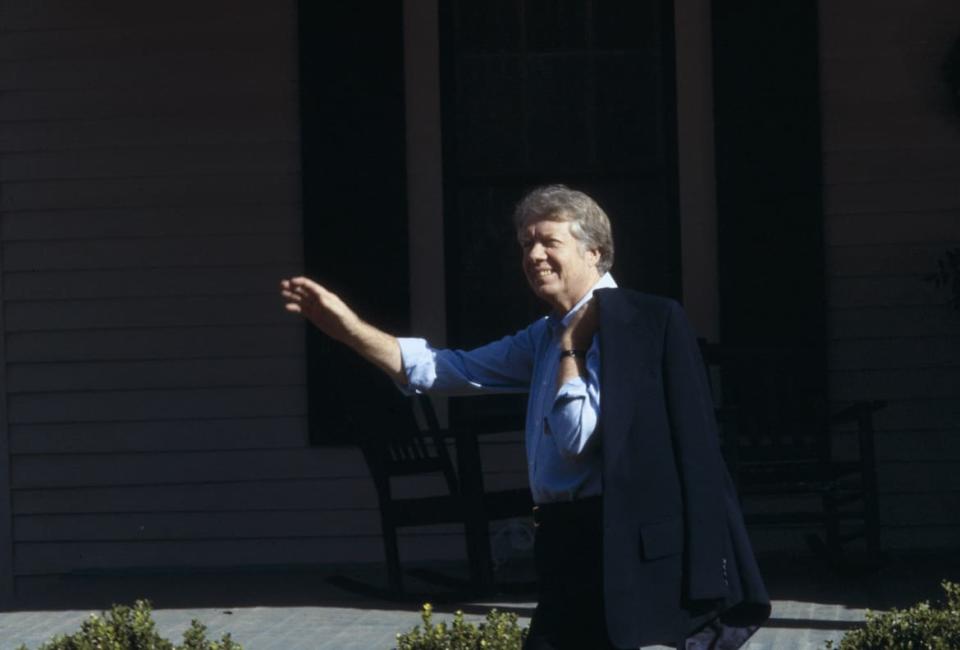
President Jimmy Carter in the late 1970s.
Also during that period, Carter regularly braved contrary winds of public opinion to speak out against what he saw as wrongs that needed addressing. Nowhere is this more clear than his championing the rights of Palestinians and his having the courage to call out Israel as an apartheid state.
When he first did that, it was so contrary to prevailing U.S. attitudes that I (like many others) condemned Carter. However, as years have passed, it has become clearer and clearer that he saw the truth and had the courage to articulate it regardless of the impact it might have on his popularity.
Biden’s Trip to Kyiv is the Ultimate Humiliation for Putin—and Trump
That’s a demonstration of the kind of character we need but seldom see in our leaders. It is a repudiation of politicians who let polls determine their positions and of others who have no values at all other than the promotion of their narrow self-interests.
We have seen far too many of both types of defective leaders in the years since Jimmy Carter served as our president. We have also seen presidents, like Reagan, hailed for accomplishments that were not theirs, for values they neither lived nor understood very well. And in contrast to them all, we have this Naval Academy graduate, former submarine officer, former farmer, former governor, and former president who has lived every minute of his life in the expectation that he will ultimately answer to a higher authority than donors or pundits or the ebb and flow of public opinion.
As a consequence, he has remained constant even as we have changed. Fortunately, as he enters this last phase of his life on Earth, we are gaining the clarity we need to appreciate him in a way that we did not for much of the past half-century.
Get the Daily Beast's biggest scoops and scandals delivered right to your inbox. Sign up now.
Stay informed and gain unlimited access to the Daily Beast's unmatched reporting. Subscribe now.

